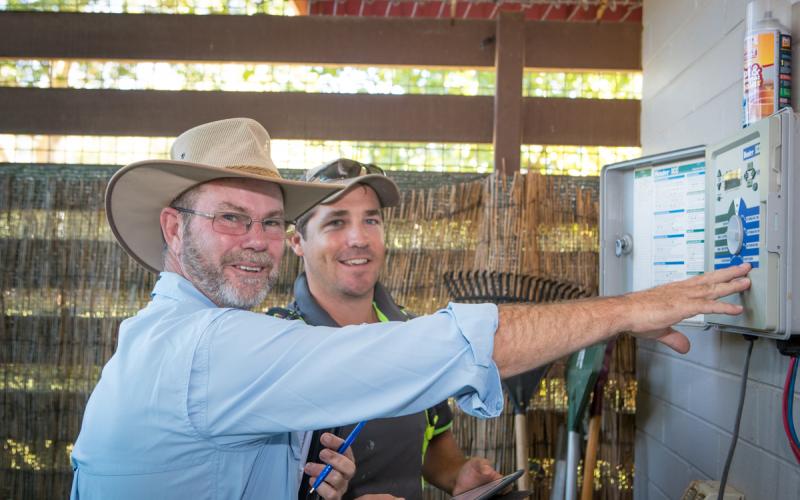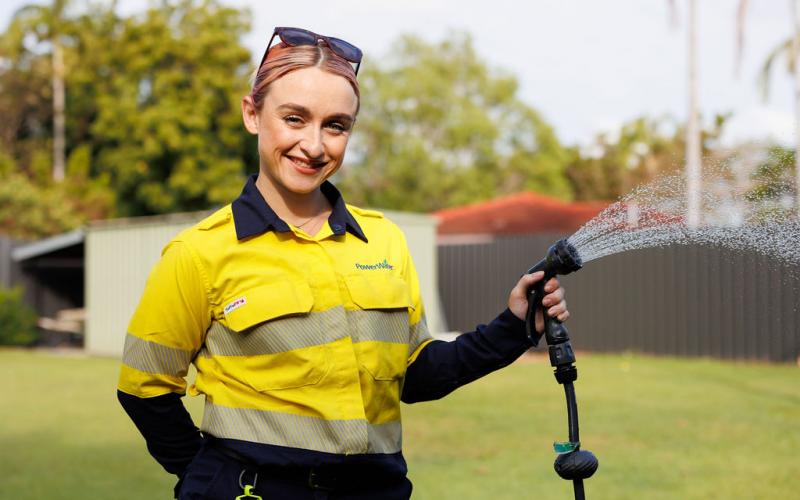Stay smart with the Weather Web
Your garden’s next best friend
We all know Darwin’s weather has a mind of its own. One suburb can get a downpour while the next stays completely dry which makes it hard to know when your garden really needs watering.
That’s where the Weather Web comes in.
It’s a network of more than 30 weather stations on school rooftops across the Darwin region, collecting real-time rainfall and weather data you can check anytime.
Tap into the Weather Web
There are two easy ways to use it:
- Low-tech: Check your suburb’s rainfall and manually adjust your irrigation.
- High-tech: Let a smart irrigation controller do it for you, automatically adjusting to local conditions.
Take me to the Weather Web
We’re so pleased you’re interested in making smart decisions about watering your garden based on rainfall in your suburb.
Setting it up is as easy as 1,2, 3.
Step 1: Search for your suburb in the search bar or click on the pink circles in the map below. They will reveal your closet weather stations.
Step 2: Check the amount of rainfall in your nearest suburb and find out if you need to irrigate or not.
Step 3: Turn your irrigation ON or OFF according to your result. If you have a smart irrigation controller, connect it to the Weather Web and your irrigation will turn on or off automatically.



